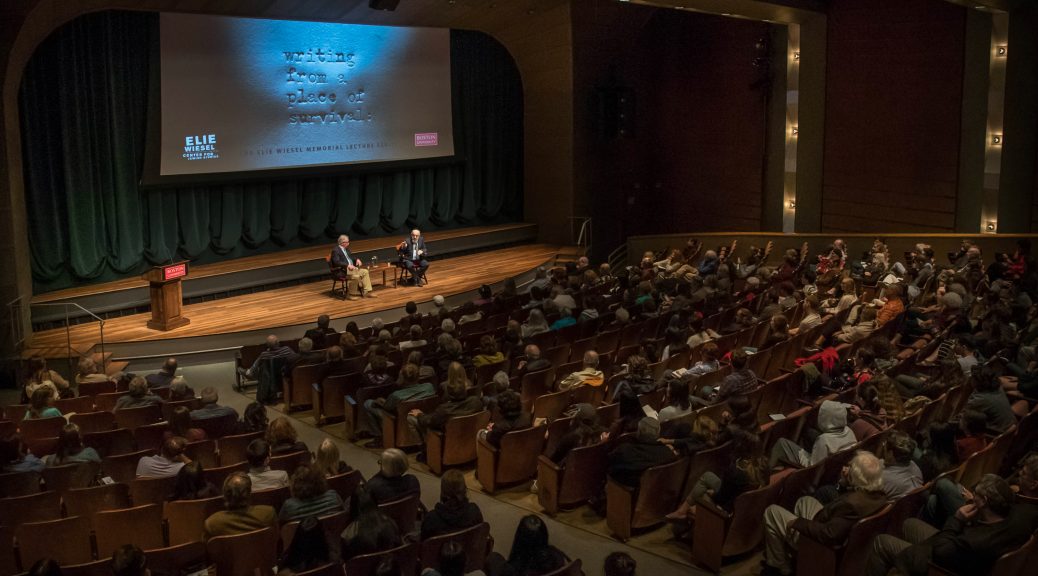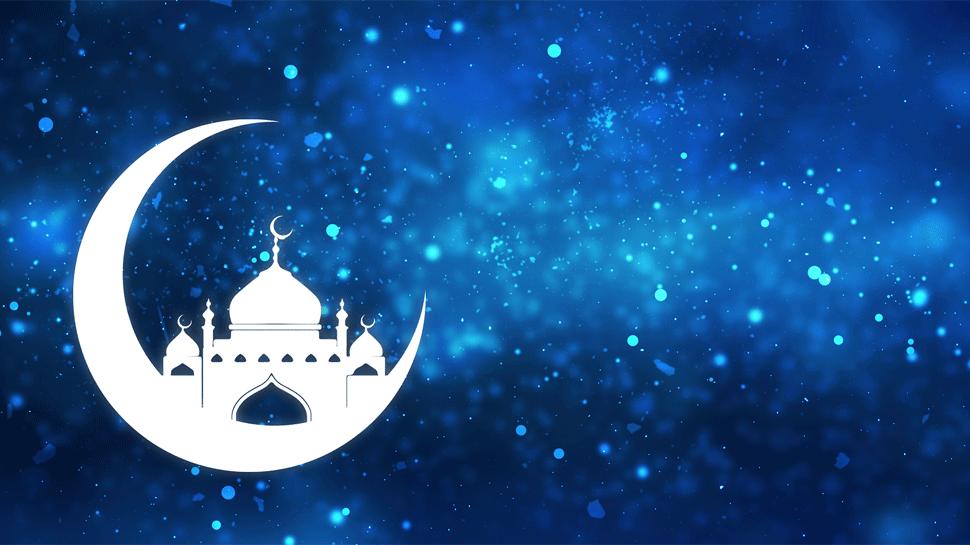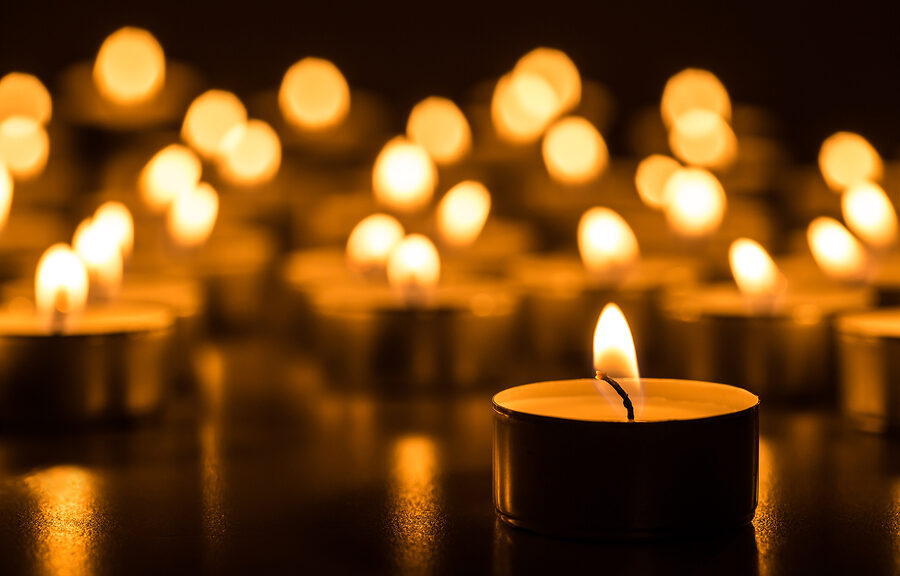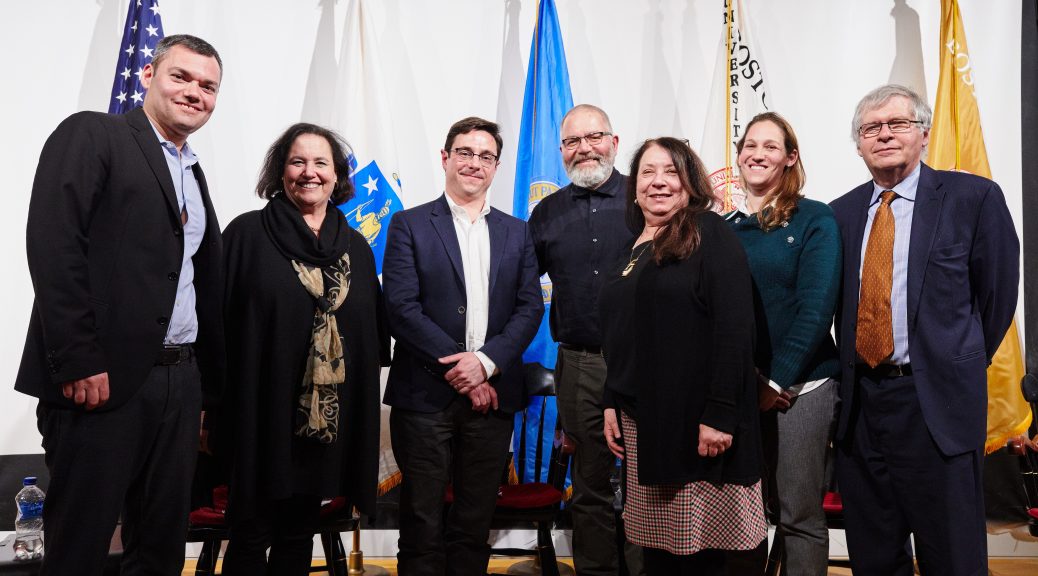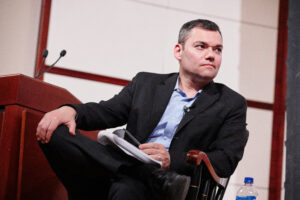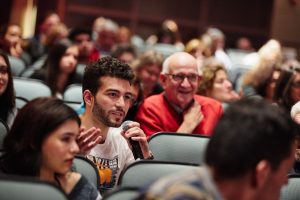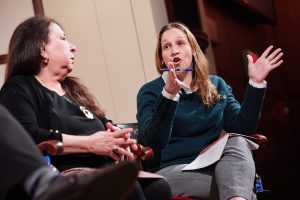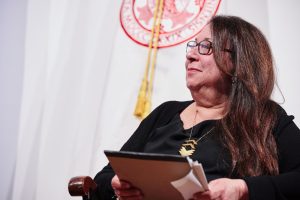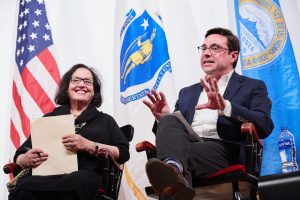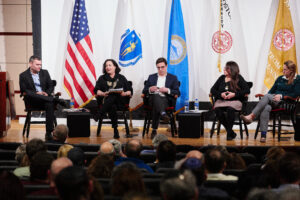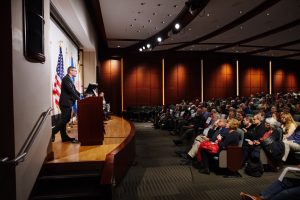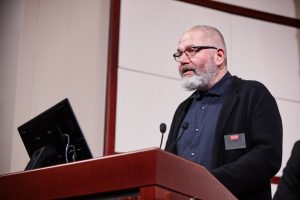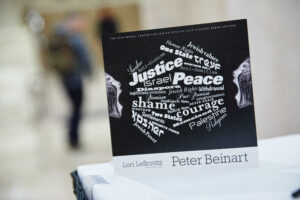By: Michael Zank
I saw a wonderful show yesterday at the Paramount in Downtown Boston. It was called peh LOH tah, a futbol framed freedom suite by Marc Bamuthi Joseph and the Living Project. It featured a combination of dance, spoken word, song, and visual projection, using soccer, a sport that connects so many people across the globe, as a source of inspiration to speak about the condition of people of color, about the vulnerability of migrants, about economic justice, and “Black joy.” One of the memorable lines I remember went like this: People can imagine the end of the world before they can imagine the end of capitalism.
Why am I telling you this?
Because to me, Holocaust remembrance is about the imagination. Without imagination, we cannot see, we cannot connect. Without imagination, we cannot recall the past, and we cannot project ourselves into a future that is significantly different from the past or the present. There can be no change without imagination.
My father in law, who is a 98-year-old emeritus professor of mathematics, was born in Warsaw and grew up in Sosnoviec, Poland, not far from Krakow and hence also not far from Oswiecim, better known as Auschwitz. In 1943 he was rounded up and delivered to what in Jewish camp jargon was referred to as “the yeshive,”an SS camp called Gross Rosen, from where the SS would distribute young healthy Jews as slave laborers to a myriad of labor camps dotting the border region between Poland and the Czech Republic. My father in law ended up at the woodworking factory Hubert Land at Bunzlau. Working on heavy machines he could forget for hours at a time that he was no longer a human being. In early 1945, along with about 440 others, he was marched across German-occupied territory and ended up in Bergen Belsen, which was liberated by the British on April 15, 1945. That was the day my father in law’s humanity was restored. (On the Boleslawiec/Bunzlau camp see HERE , HERE, and HERE.)
Over the years, Abe told many stories, mostly about people of courage to whom he owed his life. A young woman who secretly left him a container of hot soup, fearful of being recognized as his benefactress. A German soldier who threw him a loaf of bread, pretending it was a gesture of contempt rather than an act of kindness. The SS officer inspecting the factory and hearing Abe out as he explained, in imperfect German, why the machines had ceased to work. People with infinite courage, as he used to say, who saw him in his “striped pajamas” but recognized him as human.
Abe always emphasized that most human beings suffer from a lack of imagination.
Holocaust Memorial Day stimulates our imagination. We are meant to put ourselves in the place of the victims. We are reminded of their names, their lives, their civilization, built over the course of a millennium and destroyed in a mere twelve years.
Today, despite an increase in anti-Semitic incidents, Jews are strong, accepted, and even privileged. America has been an unprecedentedly welcoming home for Jews. We also have a Jewish state. Israel’s economy and her military are among the strongest in the Middle East. Israeli democracy is as vibrant as can be.
The question I am asking myself today is this: Do we have enough imagination to see ourselves not just as a people of survivors but as the privileged agents that we actually are? Are we invested in speaking on behalf of others who have no voice or who are silenced by bullies? Are we attentive to our own white privilege and are we finding ways of empowering others? If we are able-bodied, can we see people with disabilities as fully human? As employers, do we treat our employees with respect?
The Holocaust was an extreme case of dehumanization. But dehumanization happens everywhere and all the time, and we must resist it where we see or participate in it, whether it is in the world of work, or in our all-too-segregated communities, or somewhere else. The original Yiddish version of Elie Wiesel’s world-famous memoire Night, bore the title And the World Was Silent. (Un di Velt hot geshvign.) Will we be silent, or will we speak? To speak on behalf of others requires imagination. I requires that we care.
As we remember the six million dead, the million and a half Jewish children murdered, exterminated in ways that are unspeakable and unimaginable, let us commit to speaking out on behalf of the many who are dehumanized, tortured, neglected, and forgotten today. Humanity is not a fact we can take for granted. It is a task we must make our own, over and over again, little by little, and person by person.
Let us commit to speaking out. Let us not remain silent. Let us stand up to the purveyors of hate. Resist those who tell us this country is full. Let us resist those who claim there is moral equivalence between white supremacists and those who oppose white supremacy. Let us resist anti-Semitism in every form and fashion, but let us also resist those who want us to fall in line as they target others for their religion, their place of origin, or their sexual orientation. Our Law commands us to love, not to despise or exclude, the stranger, for s/he is like you. As we remember the Holocaust, we also remember that we were not the only ones singled out for destruction.
Let us attend to our history, not ignore or forget. Those who forget are doomed to repeat. But let us also study, learn, and listen to the histories of others as if they were our own.
Today, at Marsh Plaza, near a monument to Dr. Martin Luther King Jr., let us mourn our dead, and recommit to the protection of civil and human rights for all.

